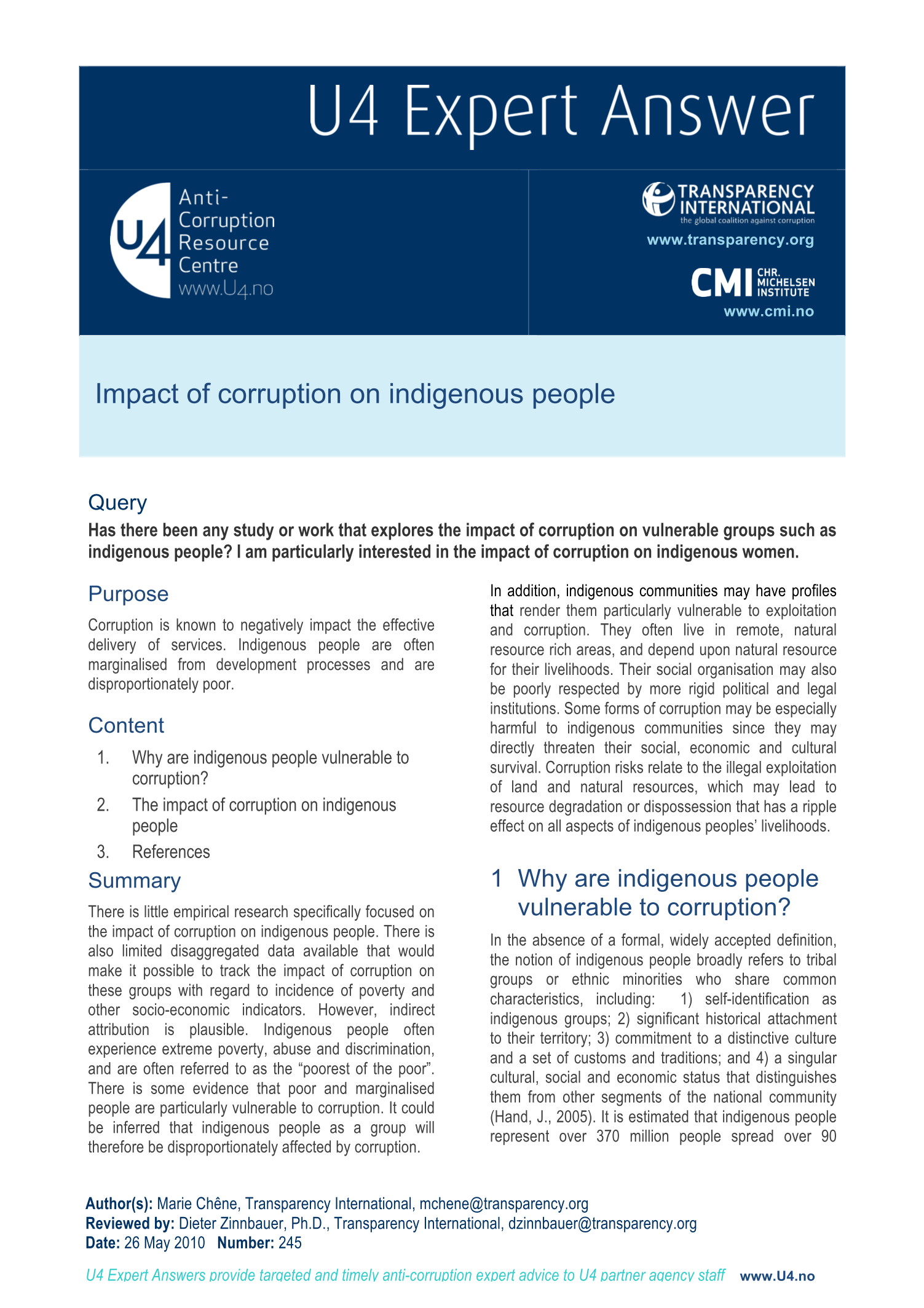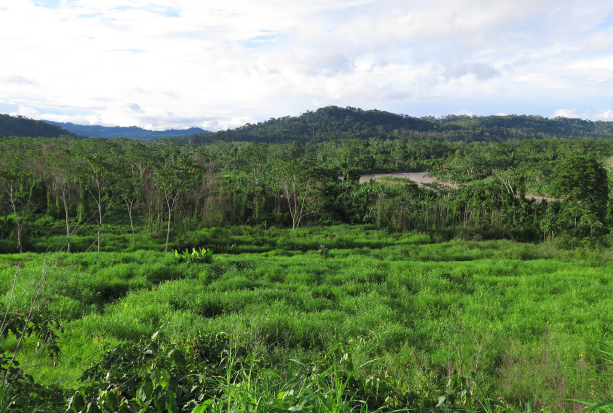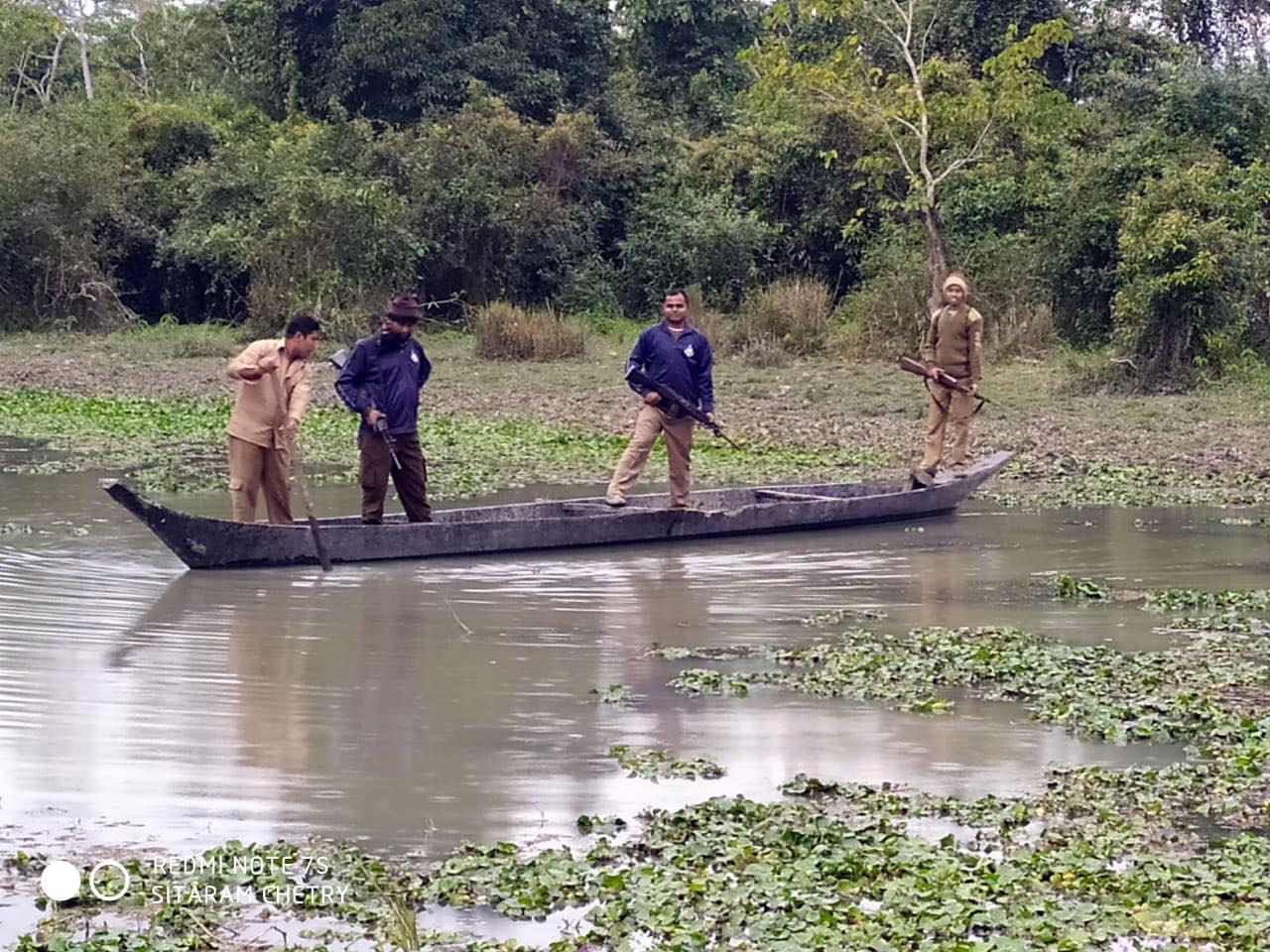U4 Helpdesk Answer
Impact of corruption on indigenous people
There is little empirical research specifically focused on the impact of corruption on indigenous people. There is also limited disaggregated data available that would make it possible to track the impact of corruption on these groups with regard to incidence of poverty and other socio-economic indicators. However, indirect attribution is plausible. Indigenous people often experience extreme poverty, abuse and discrimination, and are often referred to as the “poorest of the poor”. There is some evidence that poor and marginalised people are particularly vulnerable to corruption. It could be inferred that indigenous people as a group will therefore be disproportionately affected by corruption.

Cite this publication
Chêne, M. 2010. Impact of corruption on indigenous people . Bergen: U4 Anti-Corruption Resource Centre, Chr. Michelsen Institute (U4 Helpdesk Answer null)
Disclaimer
All views in this text are the author(s)’, and may differ from the U4 partner agencies’ policies.
This work is licenced under a Creative Commons Attribution-NonCommercial-NoDerivatives 4.0 International licence (CC BY-NC-ND 4.0)

